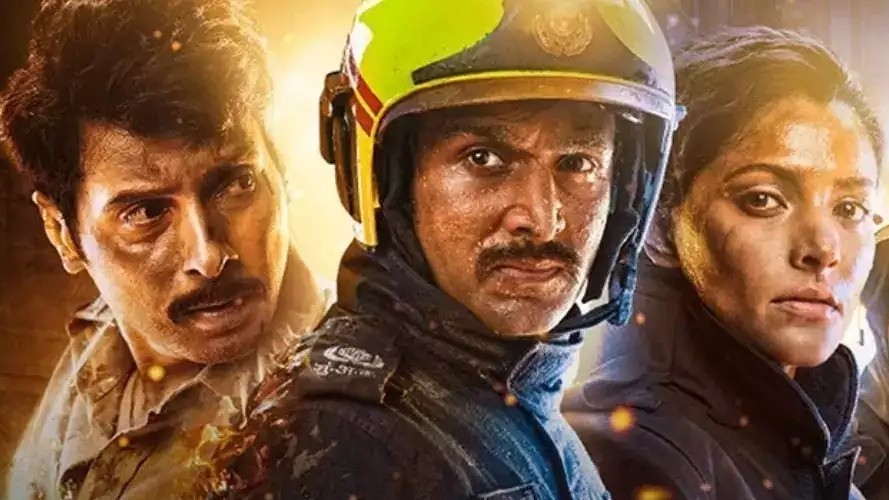Title: Agni
Director: Rahul Dholakia
Cast: Pratik Gandhi, Divyenndu, Saiyami Kher, Sai Tamhankar, Jitendra Joshi, Udit Arora, Kabir Shah and others
Where: Streaming on Amazon Prime
Rating: 2.5 Stars
If films could moonlight as political manifestos, Agni would be the torchbearer for the underrepresented brigade of firefighters. Unfortunately, this torch burns with more smoke than searing heat, its ambitious premise struggling with its narrative inconsistencies. A slice-of-life drama masquerading as a revenge thriller, Agni attempts to salute the unsung heroes who battle infernos daily, but its execution leaves us smouldering with mixed feelings.
The film opens with an evocative two-minute unbroken shot, following a ceremonial flame through the fire station’s morning routine. It’s a technical marvel, capturing the sombre yet spirited rhythm of these unsung warriors’ lives. But if you’re hoping this attention to detail carries through the rest of the film, brace yourself for disappointment. The narrative, while noble in its intentions, succumbs to verbosity and superficiality, brushing past the gritty realities of firefighting to focus on a half-baked conspiracy about arson and revenge.
Pratik Gandhi as Vitthal Rao Surve, the Chief of Parel Fire Station, delivers a stoic and heartfelt performance, embodying the resilience of his profession. Saiyami Kher’s Officer Avni brings a grounded authenticity, and Udit Arora as Jazz adds youthful energy to the ensemble. Yet even their collective brilliance cannot save a script that fails to ignite. The characters remain prisoners of a plot oscillating between earnest tribute and melodramatic overkill, with little room for nuanced storytelling.
The antagonist, Mahadev Nigade, played by Jitendra Joshi, is perhaps the film’s biggest misstep. Introduced late in the narrative, his motivations as a revenge-fuelled arsonist feel tacked on and rushed. One moment he’s lamenting society’s indifference to firefighters; the next, he’s setting the city ablaze like an unhinged pyromaniac. The dramatic tension fizzles out in a predictable climax, leaving the audience more baffled than satisfied.
What Agni lacks in narrative cohesion, it somewhat compensates for with striking visuals. The cinematography masterfully captures the chaos of urban life—claustrophobic roads, poorly planned neighbourhoods, and the architectural nightmares that make rescue operations Herculean. Wide-angle shots juxtapose the sprawling chaos of the city with the perilous grind of firefighting, creating a visceral backdrop that deserves a better story.
The film’s core message—that firefighters- are undervalued and society owes them more than fleeting gratitude—is undeniably compelling. But the execution wavers between preachy lines and clunky expositional dialogues that fail to resonate. Vitthal’s son Amya idolizing his super-cop uncle rather than his father adds an interesting- if underexplored, layer to the narrative about societal perceptions of heroism.
Ultimately, Agni is a decent watch for viewers prepared to overlook its glaring flaws. It pays homage to firefighters and sheds light on their struggles but does so in a manner that feels more dutiful than inspired. As the flames of its intentions struggle against the damp wood of its screenplay, Agni leaves you yearning for a spark that could have truly set it ablaze.
